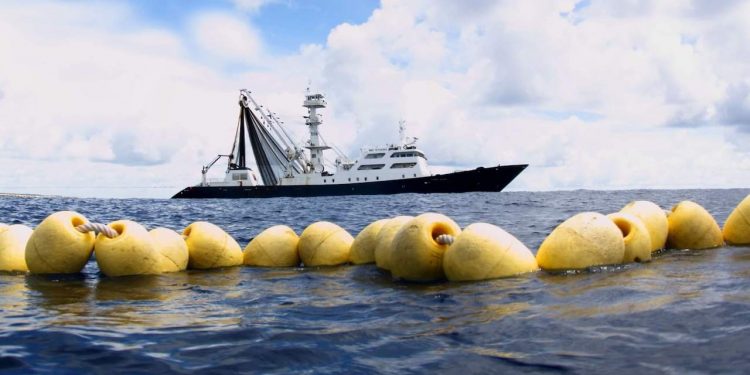An interim agreement and focused effort on electronic monitoring has been welcomed as a positive outcome for Eastern Pacific Ocean (EPO) tuna fisheries, while also setting an example for tuna RFMOs around the world.
‘We are especially pleased that the Commission reached agreement on interim electronic monitoring (EM) standards, demonstrating how focused and motivated collaboration at tuna regional fisheries management organizations (RFMOs) can yield substantive steps for the long-term, sustainable management of the world’s fisheries,’ commented a representative of the International Seafood Sustainability Foundation (ISSF).
Its standpoint is that 100% observer coverage – human and/or electronic – is both necessary for effective management, and is feasible.
‘Like other tuna RFMOs, IATTC requires only a minimum of 5% observer coverage requirement for longline vessels. Further, IATTC does not have a requirement for observer coverage on smaller, class 1-5 purse seine vessels,’ ISSF states.
‘Fortunately, technological advancements in electronic monitoring have increased the feasibility of more at-sea monitoring, control, and surveillance (MCS) and helped to close fishing data gaps. That’s why ISSF has been urgently calling on IATTC to adopt minimum standards for EM use in EPO fisheries for some time.’
Adopting these interim EM minimum standards places IATTC in a position to improve monitoring levels, making more data available for scientific work and for assessing the implementation of management measures.
‘More importantly, in swiftly and successfully tackling a complex problem, IATTC has demonstrated that the RFMO decision-making process can be both efficient and constructive. Now IATTC must dedicate resources and energy to the next phase of its work: promoting the value, implementation, and use of EM across the EPO,’ ISSF’s representative commented.
‘IATTC is the third major tuna RFMO to adopt EM standards. The Western and Central Pacific Fisheries Commission (WCPFC) – which has an overlap in convention areas and vessels with IATTC – remains the only tuna RFMO without minimum EM standards. ISSF challenges WCPFC to join its peer tuna RFMOs by filling this important gap when the Commission convenes later this year.’









